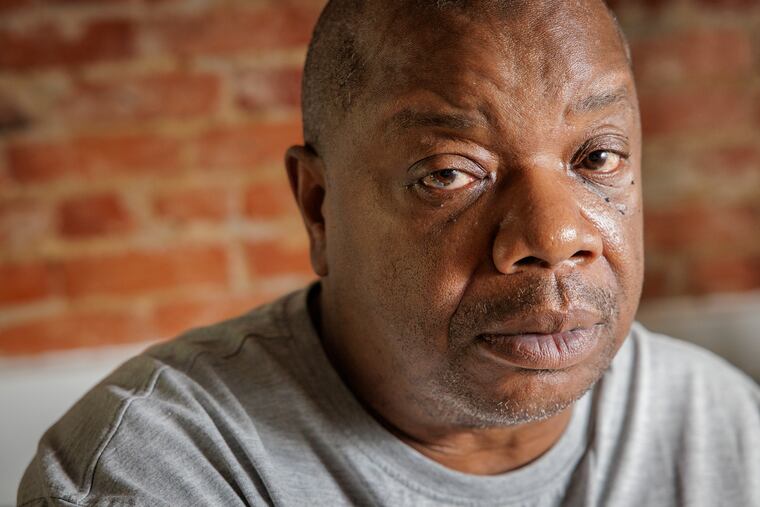
Good morning. Our big read today tells the tale of faulty drug tests and a bona fide medical mystery at the VA. We also have news on Philly’s increasingly crowded insurance market, and Jefferson Health’s “SEAL team” of elite nurses.
📮 Plus, can you guess how many new medical doctors graduated in the Philly region this spring? For a chance to be featured in this newsletter, or to share your tips, questions and suggestions, email us back.
If someone forwarded you this newsletter, sign up here.
— Aubrey Whelan and Alison McCook, Inquirer health reporters, @aubreywhelan and @alisonmccook
We were tempted to give Agatha Christie a byline on this week’s big read: A man claims he’s sober, yet his urine keeps testing positive for alcohol. Can his doctor keep him out of prison?
Last fall, Aaron Schwartz, an assistant professor at the University of Pennsylvania and primary care doctor at the VA Medical Center, got a frantic call from one of his patients, saying a social worker was telling him that his urine was testing positive for alcohol, a violation of his probation.
The patient — a disabled Navy vet — insisted he was sober. But no one believed him.
Luckily, Schwartz believed him, and had a suspicion about what might be causing the urine to test positive for alcohol. But he needed proof.
Read more about Schwartz’s unconventional experiment to test an unconventional hypothesis, and the profound flaws it revealed in the way urine is tested for alcohol.
The latest news to pay attention to
We take you inside Jefferson’s nursing “SEAL team” — a group of highly paid, highly experienced nurses who fill staffing gaps at Jeff’s burgeoning health network of hospitals, rotating between hospitals on a six-week schedule. The system has helped retain more nurses and reduce staffing shortages, Jeff officials say.
Anthony V. Benedetto was a rarity in the medical world: A dermatologist who kept his independent practice for more than 40 years. But this summer, he joined the majority of physicians around the country who work for health systems or large practices. His story is a microcosm of the financial pressures facing independent physicians today.
Watch out, IBX: There’s a new insurer in town. Pittsburgh-based Highmark enrolled more than 30,000 people in its health plans, mostly through employer group plans, in its first six months in the Southeastern Pennsylvania market. Long known for its competitive hospital market, Philly’s insurance market is on its way to becoming just as heated.
Exclusive data dive
This week’s number: 981.
That’s the number of new MDs who graduated from Philly-area medical schools this spring, number crunching by our colleague Abraham Gutman found.
The largest classes were at Jefferson and Drexel, each with more than 250 grads.
Cooper-Rowan medical school in Camden, the newest school in the region, graduated just over 100 students.
The data comes from the Association of American Medical Colleges. It also breaks down grads by gender, showing a roughly 50/50 split in most schools.
These MDs aren’t the only newly-minted physicians in the Philly area: the region has two DO schools, PCOM and Rowan-Virtua, which, combined, graduated more than 400 students last year.
This week, we bring you some inspection news, along with our typical rotation approach to reporting on hospitals. That’s because when newsy inspections land, we report the findings in real time. Last week, our colleague Sarah Gantz wrote about two Main Line Health hospitals cited by Pennsylvania health inspectors for failing to report two instances of child abuse.
One citation involved a girl who came to Lankenau Medical Center after being sexually and physically assaulted by three people. In another, a 17-year-old girl was raped and sought help at Bryn Mawr Hospital’s emergency department.
In both instances, hospital staff failed to uphold their responsibilities as “mandated reporters” under Pennsylvania law, which requires them to report suspected abuse against an underage patient.
Sarah also took her customary look at Nazareth Hospital in Philadelphia, where between January and June, state inspectors found no safety violations.
Robyn Faye is an OB-GYN at Jefferson Abington Hospital who’s been certified as a sex counselor through the American Association of Sexuality Educators, Counselors and Therapists (AASECT).
Later this year, she’ll become the co-director of Abington’s new menopause center. She spoke with our colleague Wendy Ruderman about age, intimacy, and why hormones act like “a lava lamp” during the months and years leading to menopause.
There were some sweeping staff switch-ups at one of the nation’s biggest Medicaid insurers, AmeriHealth Caritas, headquartered in Newtown Square.
Kelly Munson — who became CEO in February — announced the changes last week, which come after the managed care organization failed to win state Medicaid contracts in Florida and Texas.
The company’s general counsel, chief medical officer, and chief development officer are all out, and its chief financial officer will retire at the end of the year. Instead, two senior executives from the largest Medicaid insurer (Centene Corp.) will take on leadership roles at AmeriHealth Caritas.
Check out Harold Brubaker’s story for more details on major moves at the organization.
Did you see an uptick in patient calls about food poisoning after the Labor Day weekend? We wouldn’t be surprised, given that it is a holiday associated with BBQ parties, and most people don’t use meat thermometers to check if their burgers are safe to serve.
A recent survey of nearly 1,500 U.S. adults by the Annenberg Public Policy Center of the University of Pennsylvania also found that most people don’t know what temperature to cook different cuts of meat to kill bacteria and viruses.
See if you can beat our readers’ knowledge about how to cook meats safely by taking our quiz.
📮What other key aspects of food safety you think are too often ignored? For a chance to be featured in this newsletter, email us back.
By submitting your written, visual, and/or audio contributions, you agree to The Inquirer’s Terms of Use, including the grant of rights in Section 10.